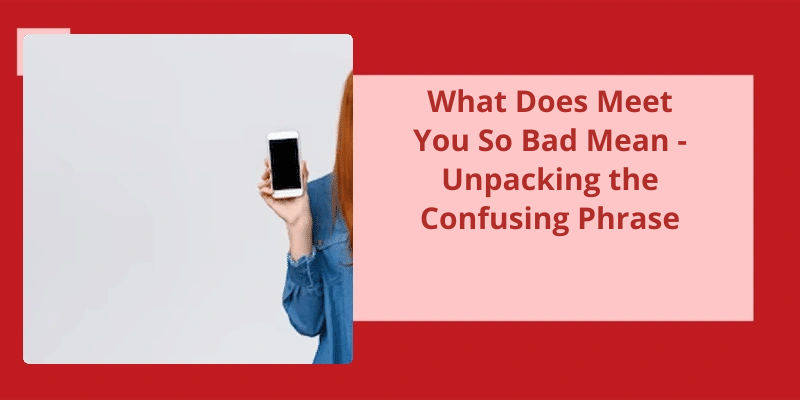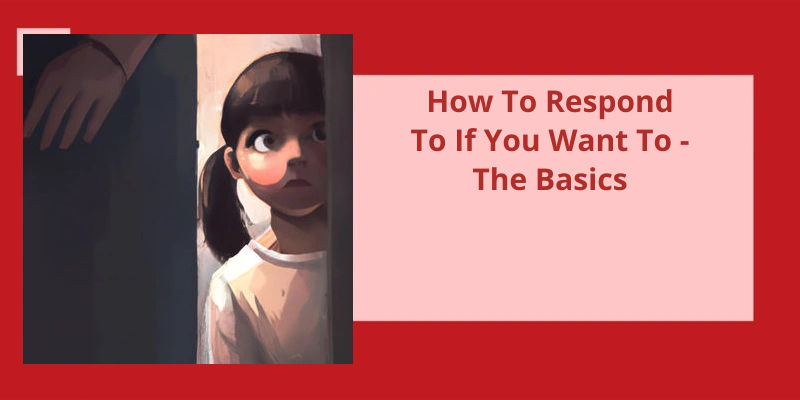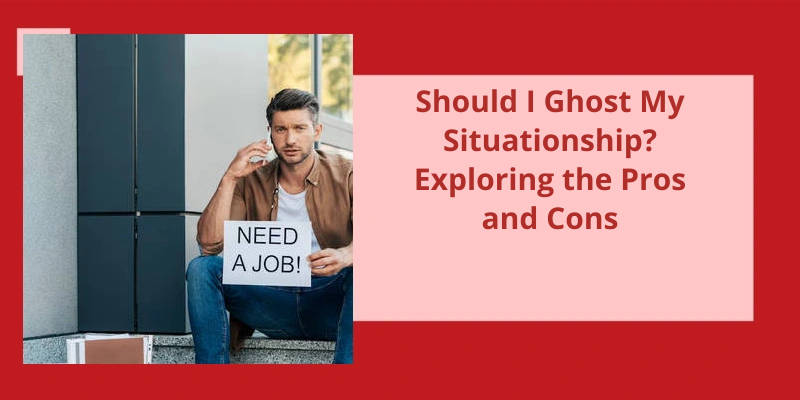The concept of meeting someone can hold a significant degree of importance for many individuals, especially in the context of building personal connections and relationships. When someone expresses their desire to meet you so bad, it signifies a strong urge to establish a physical meeting, a desire to get to know you on a deeper level or pursue an opportunity that could involve your presence. However, this statement may be interpreted in various ways, and it requires an understanding of the individual's intention behind it. It's important to acknowledge that the phrase doesn't carry any negative connotations, and the person is genuinely interested in crossing paths with you. Hence, it's crucial to be receptive and understanding when someone expresses such a sentiment towards you.
What Does So Bad Mean in Slang?
In a slang context, “so bad” doesn’t always carry negative connotations. In fact, in many cases, it’s used to describe something thats desirable or exciting. For example, you might say that you “want that shirt so bad” or that you “need a vacation so bad.”
The origins of using “so bad” in this way can actually be traced back to African American Vernacular English (AAVE) in the 19th century. It was commonly used to add emphasis to certain phrases or to indicate strong feelings. Over time, the usage spread to other dialects and became more widely adopted.
For example, if someone says “he was driving so bad,” theyre likely criticizing the persons driving ability. Similarly, if someone says “that movie was so bad,” theyre expressing the opinion that the movie was not good.
Whether it’s being used to express excitement or criticism, the key is to understand the underlying message and tone being conveyed. By understanding the nuances of slang language, we can better communicate and connect with those around us, regardless of their background or dialect.
Understanding idioms and colloquial expressions is an essential part of mastering any language. In English, expressions such as “I love you so bad” indicate extreme affection or admiration, but can be easily misinterpreted by non-native speakers. However, as with any language, context is key when interpreting idiomatic expressions, and native speakers wouldn’t typically perceive the phrase as a negative statement.
What Does I Love You So Bad Mean?
When someone says “I love you so bad,” it can be a bit confusing without context. It’s important to understand that in this situation, the phrase “so bad” doesn’t necessarily mean that something is negative or that the person doesn’t deserve to be loved. Rather, it’s frequently used as an expression of extreme passion or desire.
While it’s true that “so bad” is typically associated with negative connotations, it’s important to remember that language is a flexible and nuanced tool. In this case, the phrase has taken on a new meaning that’s specific to this particular way of expressing affection.
The use of idioms in language can often be confusing for non-native speakers, particularly when the meanings of seemingly unrelated words are combined in unexpected ways. However, it’s worth taking the time to understand these expressions, as they can be an important part of communicating effectively with English speakers.
It’s also worth noting that the nuances of language can vary significantly between different regions and dialects. This highlights the importance of not assuming that idioms and expressions are universally understood.
Overall, it’s important to approach language with an open mind and to be willing to adapt to new expressions and meanings. While it can be difficult to navigate the complexities of idiomatic language, taking the time to do so can greatly enhance ones ability to communicate effectively with others. Whether youre a native English speaker or a non-native learner, taking the time to understand idioms and expressions like “I love you so bad” is essential for effective communication.
Conclusion
It doesn’t carry any negative connotations or insinuate any ulterior motive in the desire to meet. It’s important to embrace and reciprocate this sentiment with excitement and a willingness to make the meeting a reality.






